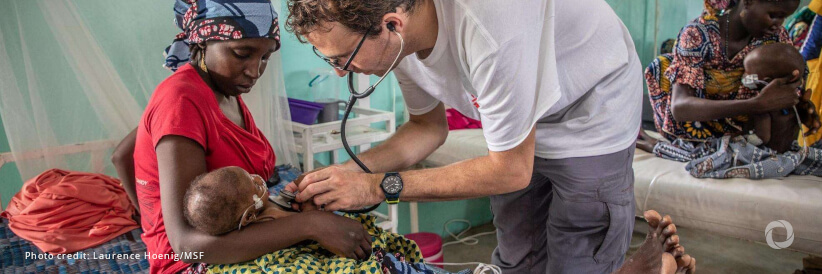UNOPS is working with the government of Niger to strengthen the public healthcare system’s infectious diseases preparedness and emergency response capacity, with funding from the World Bank.
Using more than $37 million in funding from the World Bank, UNOPS is procuring and delivering essential health equipment and supplies, including incinerators, refrigerated vaccine transport vehicles, and cold chain equipment, among other items. UNOPS will also provide training in the use and maintenance of the equipment as well as install the incinerators as part of the project.
“An analysis of the situation in Niger highlighted some of the challenges we face, such as weak intersectoral capacity – which hinders effective surveillance and response to diseases and disasters as well as access to health information, products, and services with a health coverage rate of 55 per cent,” said Dr. Garba Hakimi, Niger’s Minister of Public Health, Population, and Social Affairs.
UNOPS has been working closely with national partners in Niger to identify and provide equipment that best fits the needs of the country.
”This equipment will strengthen access to quality healthcare by providing a cold chain system in Niger to support vaccination services and ensure the safe management of biomedical waste”, Jakob Tuborgh – Director a.i. of UNOPS Multi-Country Office in Senegal.
The first batch of health equipment has already been delivered and will be distributed across the country to strengthen healthcare capacities in remote areas, including Agadez, Diffa, Dosso, Doutchi, Gouré, Madaoua, Maradi, Tahoua, Tillabéry, and Zinder.
To increase capacity for disease surveillance and epidemic preparedness, UNOPS is also procuring and delivering six equipped mobile laboratories and three equipped veterinary mobile laboratories for the Ministry of Public Health and the Ministry of Hydraulics and the Environment.

